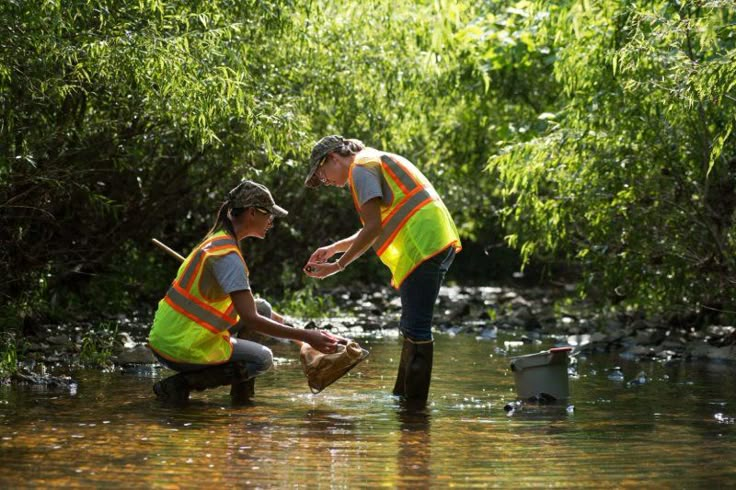Environmental Science and Sustainability: A National Perspective

- Repoter 11
- 04 Feb, 2025
Environmental science has emerged as a critical field in understanding the relationship between human activities and the natural world. The rapid industrialization and population growth of the modern world have put significant strain on ecosystems and natural resources. In the face of these challenges, environmental science has become vital in exploring sustainable solutions for the preservation of the environment. In this article, we will explore key environmental issues from a national perspective and discuss the importance of scientific research and policy in tackling these challenges. Climate change has become one of the most pressing environmental challenges of our time. National governments and international bodies have recognized its severity, as it poses a threat to ecosystems, human health, agriculture, and global economies. The rise in greenhouse gas emissions, primarily from human activities such as fossil fuel combustion, deforestation, and industrial processes, has led to rising global temperatures, extreme weather events, and disruptions to biodiversity. National governments have a crucial role to play in addressing climate change. Policy measures such as carbon pricing, emissions reduction targets, renewable energy adoption, and reforestation efforts are essential to mitigating the impacts of climate change. Scientists have stressed the importance of transitioning to a low-carbon economy and adopting sustainable energy practices to ensure the long-term health of the planet. Biodiversity—the variety of life on Earth—is essential for the functioning of ecosystems and the well-being of human societies. However, human activities such as habitat destruction, pollution, overexploitation of resources, and climate change have contributed to the rapid decline in biodiversity. According to the United Nations, we are currently experiencing the sixth mass extinction event in Earth's history, with species disappearing at an alarming rate. National governments, in collaboration with international organizations, must prioritize conservation efforts to protect endangered species and restore ecosystems. Scientific research plays a pivotal role in understanding the needs of different species and ecosystems, as well as the impacts of human activities on biodiversity. Conservation strategies, including the establishment of protected areas, habitat restoration, and wildlife corridors, are critical in preventing further biodiversity loss. Pollution is a widespread environmental issue that affects air, water, and land quality. Industrialization, agriculture, and urbanization have contributed to the contamination of natural resources, leading to severe consequences for both human and ecological health. Air pollution, in particular, has been linked to respiratory diseases, cardiovascular problems, and premature deaths, especially in urban areas with high levels of vehicle emissions and industrial activity. Water pollution, primarily caused by agricultural runoff, sewage discharge, and industrial waste, threatens freshwater supplies and aquatic ecosystems. Toxic chemicals, heavy metals, and plastics in the oceans are increasingly becoming a global concern, as they threaten marine life and enter the food chain. Furthermore, land pollution, including the accumulation of waste in landfills, poses risks to soil fertility and wildlife habitats. National policies aimed at reducing pollution are essential for improving environmental quality. Regulations on emissions, waste management, water treatment, and the reduction of single-use plastics are crucial in addressing pollution. In addition, environmental education and public awareness campaigns can play a significant role in encouraging sustainable practices and reducing individual contributions to pollution. Agriculture is a critical sector for both national economies and food security. However, conventional farming practices, including excessive pesticide use, monoculture farming, and overgrazing, have resulted in soil degradation, water pollution, and a loss of biodiversity. These unsustainable practices have also contributed to climate change by emitting greenhouse gases from deforestation and intensive livestock farming. Sustainable agriculture is essential for ensuring food security in the face of a growing global population. By promoting practices such as crop rotation, agroforestry, organic farming, and reduced pesticide use, we can protect ecosystems while maintaining agricultural productivity. Moreover, shifting towards plant-based diets and reducing food waste can further contribute to sustainability. Governments have a responsibility to support sustainable agricultural practices through subsidies, incentives for eco-friendly farming methods, and research into innovative technologies that reduce environmental impact. Advancements in environmental science and technology have played a crucial role in developing solutions to environmental challenges. From renewable energy technologies such as solar, wind, and hydroelectric power to innovations in waste management, sustainable agriculture, and water purification, science and technology have the potential to mitigate many of the issues facing our planet. National governments must invest in research and development to promote the adoption of green technologies and sustainable practices. Public-private partnerships can also facilitate the transition to a more sustainable economy, where technology plays a central role in addressing climate change, pollution, and resource depletion. The environmental challenges we face today are complex and interconnected, requiring comprehensive solutions at the national, regional, and global levels. Scientific research, technological innovation, and sound policy are essential in addressing issues such as climate change, biodiversity loss, pollution, and sustainable agriculture. While governments play a central role in enacting laws and regulations, individuals, businesses, and communities must also contribute to creating a sustainable future. The path forward requires collective action to protect the environment for future generations. By promoting environmental awareness, supporting sustainable practices, and investing in green technologies, we can work together to safeguard our planet's health and ensure a thriving and sustainable future.1. Climate Change: A National and Global Crisis
2. Biodiversity Loss: The Importance of Conservation
3. Pollution: Addressing Air, Water, and Land Contamination
4. Sustainable Agriculture and Food Security
5. The Role of Science and Technology in Environmental Solutions
Conclusion: The Path Forward
Leave a Reply
Your email address will not be published. Required fields are marked *




